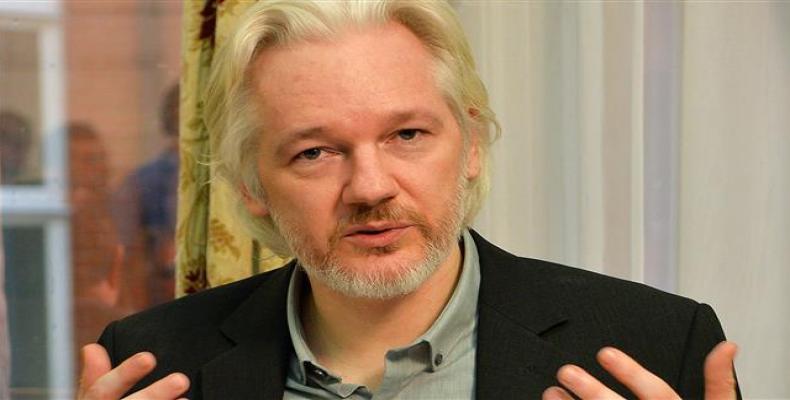Quito, March 14 (RHC)-- The Inter-American Commission on Human Rights has closed the request for precautionary measures requested by the founder of WikiLeaks, Julian Assange, so he will have to continue complying with the new rules on his asylum imposed by Ecuador, said the Andean country's Attorney General.
Assange's lawyers asked for the measures before the IACHR arguing the existence of "a potential risk" to his situation in the Ecuadorean embassy in London for the conditions that regulate their asylum granted in 2012. "The IACHR communicated its decision to close the application file for precautionary measures requested by Julian Assange," the Attorney General's Office said in a statement issued in Quito.
"The decision was based on the fact that the request filed by Assange did not comply with the requirements of gravity, urgency and irreparable harm provided for in Article 25 of the Rules of Procedure of the IACHR," he added. Assange's lawyer was not immediately available for comment.
Ecuador imposed these rules since last year to regulate visits to Assange, his medical expenses and bills and the care of his pet, which was qualified as a violation of his human rights and led his lawyers to file a lawsuit against him.
The Ecuadorean judges denied Assange's request to annul the new rules, so the Australian went to the international body. The Ecuadorean government has said that failure to comply with the rules would lead to a potential withdrawal from asylum.
"With this decision, the Special Protocol of Visits, Communications and Medical Care remains in force, which guarantees the rights of the asylee," the statement concluded.
Inter-American Commission on Human Rights denies precautionary measures raised by Assange

Related Articles
Commentaries
MAKE A COMMENT
All fields requiredMore Views
- New York doctor fired for rejecting Zionist propaganda, defending resistance
- Artistic swimmers prepare for continental competition
- Russian minister says BRICS to establish digital payment system for members
- President Nicolas Maduro rejects Marco Rubio's threats against Venezuela
- Ibero-American Criminal Sciences event comes to a close in Cuba

